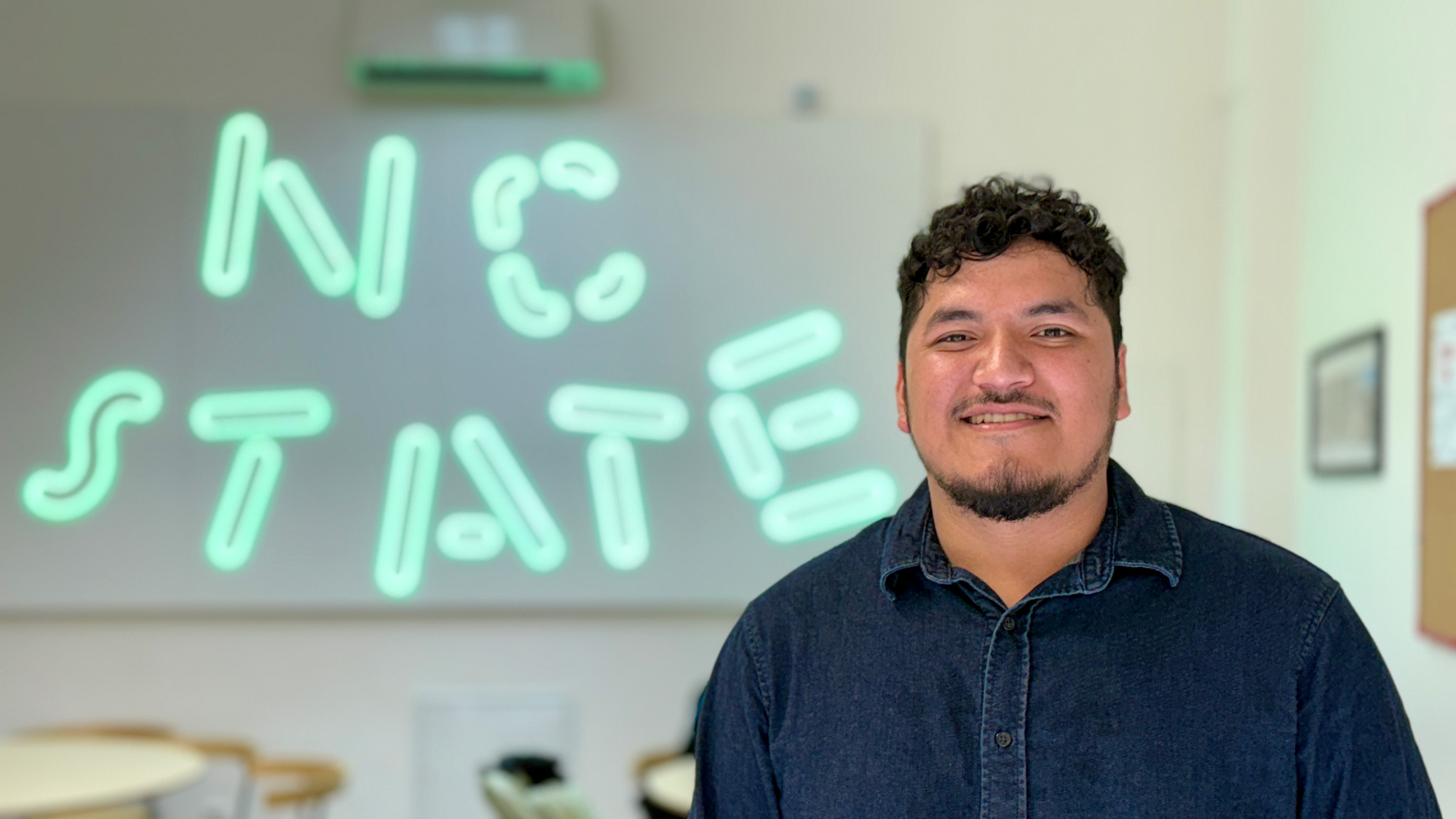Professor Robert Handfield: Curiosity Drives His Quest for Knowledge; the SCRC Reflects His Commitment to Teaching

In the year 2000, Robert Handfield, Bank of America University Distinguished Professor of Supply Chain Management at the NC State Poole College of Management, established the Supply Chain Resource Cooperative, now one of six college-based initiatives that connect academic research and teaching with the problem-solving needs of business and industry.
Since its inception, the SCRC has helped to launch the careers of more than 600 new supply chain professionals through real world learning experiences as part of their supply chain curriculum. More than 60 companies have partnered with the SCRC to address supply chain issues through structured team projects that span industries, from technology to life sciences, financial services to energy.
Handfield’s commitment to teaching extends beyond Poole College, where he is one of the team of faculty experts in operations and supply chain management and teaches in the college’s Jenkins MBA supply chain management curriculum. He also is on the graduate faculty of the Operations Research Curriculum at NC State – a joint graduate program shared by the College of Engineering and the College of Sciences.
Handfield is deeply curious about what is happening – and what is on the horizon – in the field of supply chain management and operations, as well as the evolving role of data. That curiosity fuels his robust research and publications agenda that has been advancing knowledge in both academia and industry for decades. Handfield is an editor emeritus of the Journal of Operations Management, one of the leading journals in the field, and is author of several books on supply chain, the most recent being “The Living Supply Chain, the Evolving Comparative of Operating in Real Time,” published in 2017. His textbooks include “Supplying Marketing Intelligence,” “Supply Chain Redesign,” and “Introduction to Supply Chain Management,” the latter of which has been translated into Chinese, Japanese and Korean. He was ranked in the Top 25 Most Productive POM Authors in U.S. Business Schools in 1996, and has appeared in Pro to Know, a list compiled by Supply and Demand Executive Journal.
A frequent source for news reporters writing on various aspects of supply chain, operations and procurement, and the evolving role of data in industry, Handfield has been quoted in the Wall Street Journal, San Francisco Chronicle, Inc. Supply Chain Management Review, among other periodicals. He also has been interviewed for podcasts, including segments published by ManufacturingLeaders.com in England, and Manufacturing Tomorrow, produced by the Ohio Manufacturing Institute at The Ohio State University , and regularly participates as a subject matter expert in webinars, such as a recent IBM session on the impact of artificial intelligence on supply chain decision making. Handfield also shares his insights through his own blog, “View from the Field,” published on the SCRC website.
Handfield provided the following personal reflections in an email interview with Poole College communications.
Q. How did you get interested in supply chain management? What drives your continuing interest?
I was a statistics major as an undergraduate, and then worked during the summers operating my own business as a house painter, managing a crew of 12 college students. The overlap of applied mathematics and business thus interested me from a young age, and I pursued a Ph.D. at the University of North Carolina at Chapel Hill in Operations Research. During that period, I studied the components of cycle time in product manufacturing, and visited over 50 manufacturing facilities across the U.S. and Canada, collecting data for my dissertation. These observations led me to understand the importance of integrating suppliers, procurement, logistics, order fulfillment and customers, which led to a lifetime pursuit of teaching and research interests.
Q. What are a few key changes you have seen in the field of SCM over your years of involvement?
I have seen several major shifts:
- The level of professionalism has increased dramatically, and executives from the C-suite are often being recruited from the supply chain function.
- The level of real-time data and analytics enabled by cloud computing is exploding. This is a topic covered in my new book “The LIVING Supply Chain.”
- Relationships are more important than ever, and effective contract management is key to sustaining and growing mutual value in relationships.
- Old habits die hard in sales and procurement relationships. I find that people still remain too price-focused and are overlooking the long-term benefits of innovation and continuous operational improvement.
Q. What are two to three key things those in the SCM industry (and today’s students) need to pay attention to as they look ahead?
- Your integrity and actions are critical. The SCM world is a lot smaller than you think, and your reputation is the most important asset you own.
- Be in the moment when you speak to people. Don’t be distracted by your phone but look people in the eye and address them directly. As one executive at Lenovo I interviewed said , little things don’t mean a lot; they mean everything.
- Be humble. Don’t trumpet your accomplishments, as execution will speak for itself. You will improve your reputation and career by being a reliable person who can be counted on to do the right thing and get the job done. This may sound corny, but is critical.
Q. What is your vision for the SCRC as you look ahead? Both for the partner companies and the students who are involved?
I envision a day when we will expand our program to the point where we have students, former students, supply chain executives, and faculty all working on the same problems in the cloud. As analytics emerges as a central strength of our program, I believe we will soon be working on problems virtually, using datasets that are shared in real-time, working on problems as they roll out. We won’t need PowerPoint presentations anymore, as everyone will be engaged in real data, real problems, and real solutions. I expect that the level of collaboration between NC State and industry will grow to the point where we will be most trusted partners for the companies that come to us as a source of top supply chain talent, and we will find new and ever-improving ways to work together.
Q. On a more personal note: You are extremely productive in terms of research, teaching and availability for those seeking comments, advice, and seem to always have a smile. What’s your secret?
I am very efficient with my time. And I always take one day at a time, and don’t let things fluster me too much when problems arise. And when you smile, it makes everyone around you feel better about whatever is going on. Plus, I have what I think is one of the greatest jobs in the world at one of the best universities in the world. Why wouldn’t I smile?
- Categories:


